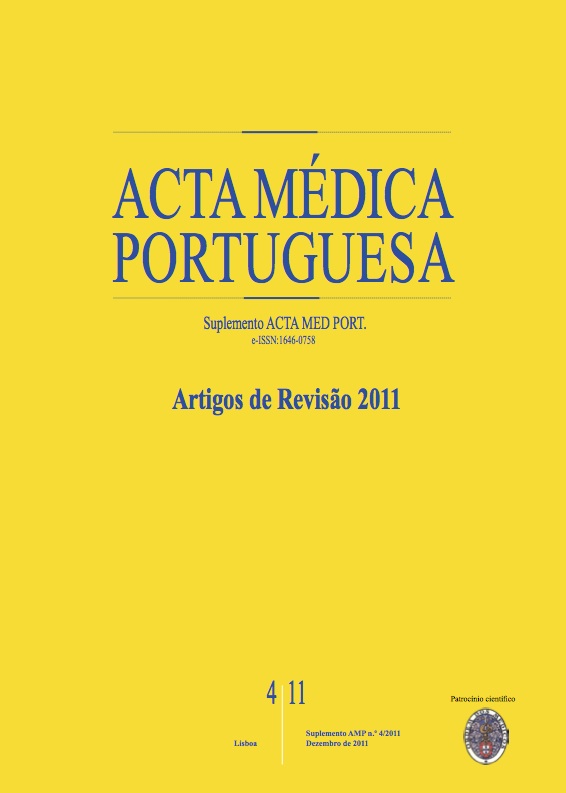O papel do complexo major de histocompatibilidade na progressão da infecção por vírus da imunodeficiência humana.
DOI:
https://doi.org/10.20344/amp.1576Resumo
Despite being uncommon, there is a small group of HIV infected that, even without treatment, do not evolve to AIDS. Several theories have been proposed over time trying to explain this phenomenon. This article addresses the role of HLA in the TC modulation.Review the literature about the role of MHC in the progression of HIV infection and identify which HLA has a greater role in the progression of HIV infection.There were included 24 original articles (19 per bibliographic search, four for cross reference and one by a survey of recently published articles) Development - Unlike humans, chimpanzees can prevent the progression of HIV disease. Their HLA has also a greater similarity with the HLA of LTNP. These phenotypes of progression of infection are the result of a combination of protective and progressive factors. Among the protective factors are HLA class I molecules, especially HLA-B. Several studies have been published on this subject and showed that the main HLA not involved in the progression of the HIV infection are HLA B27 and B57. A study recently published was able to show that variations in specific amino acids have been associated with the management of HIV infection.It is now thought that the major genetic factor capable of modulating the progression of HIV infection is the HLA-peptide interaction and more research is needed so that knowledge can be used to support the treatment of patients infected with HIV infection.Downloads
Downloads
Como Citar
Edição
Secção
Licença
Todos os artigos publicados na AMP são de acesso aberto e cumprem os requisitos das agências de financiamento ou instituições académicas. Relativamente à utilização por terceiros a AMP rege-se pelos termos da licença Creative Commons ‘Atribuição – Uso Não-Comercial – (CC-BY-NC)’.
É da responsabilidade do autor obter permissão para reproduzir figuras, tabelas, etc., de outras publicações. Após a aceitação de um artigo, os autores serão convidados a preencher uma “Declaração de Responsabilidade Autoral e Partilha de Direitos de Autor “(http://www.actamedicaportuguesa.com/info/AMP-NormasPublicacao.pdf) e a “Declaração de Potenciais Conflitos de Interesse” (http://www.icmje.org/conflicts-of-interest) do ICMJE. Será enviado um e-mail ao autor correspondente, confirmando a receção do manuscrito.
Após a publicação, os autores ficam autorizados a disponibilizar os seus artigos em repositórios das suas instituições de origem, desde que mencionem sempre onde foram publicados e de acordo com a licença Creative Commons









